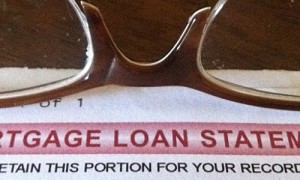Mortgage affordability is a major stressor for people all across the country, but unless they live in equally expensive cities like San Francisco, they’ve got nothing on the level of agita New Yorkers feel when it comes time to buy. Whether they’re counting out their last pennies to buy a teeny, tiny co-op or they’re combining two residences at One Beacon Court, people are putting down serious money to buy a place to live here. If you’re concerned about how much you can afford to buy a home here in NYC, answering the following questions may help.
1. How much of your gross income will be going towards your monthly expenses?
When a lender is determining how much to lend you, it will look at your debt-to-income ratio. That ratio is determined when the lender takes the sum total of your monthly expenses and divides it by your monthly income. In many cities across the country, lenders don’t like to see borrowers spending more than 28 percent of their gross monthly income on their mortgages.
In high-priced markets like NYC and San Francisco, however, the accepted ratio is often higher, going up to as much as 40 percent, and even higher, for people in higher-income brackets. Lenders want to make sure that you’re not spending above your means. It’d be nice to think it’s because they care, but it’s actually because they want you to be able to pay them their money back.
2. Is your job steady, or do your earnings vary from month to month?
If you’ve got a steady paycheck that you can rely on to carry you from month to month, you may be in a more financially secure position than someone like a freelancer or a consultant who’s hired on a more temporary basis. Even though freelancers and consultants often end up earning much more than someone who’s on staff thanks to high hourly, daily, or project rates, the fact that they’re not permanent employees makes them a potential risk in many lender’s eyes. Speak with a mortgage specialist about your specific mortgage affordability circumstances.
3. How much money are you going to put down?
How much of a down payment you pay will affect your monthly payment. Most co-ops require a minimum of 20 percent down, with some boards requiring as much as 50 percent. Many condos require as little as 10 percent down, but condos tend to be more expensive than co-ops. Crunch the numbers.
4. Have you included monthly costs like maintenance fees (co-ops), common charges (condos), and taxes?
With a condo or a co-op, you’re not just paying the monthly mortgage amount to your lender. You’re also responsible for those monthly fees that are used to keep the building running smoothly. In NYC, maintenance fees can be as high as several thousand dollars a month, so keep that in mind when figuring out your budget.
[cf]skyword_tracking_tag[/cf]






